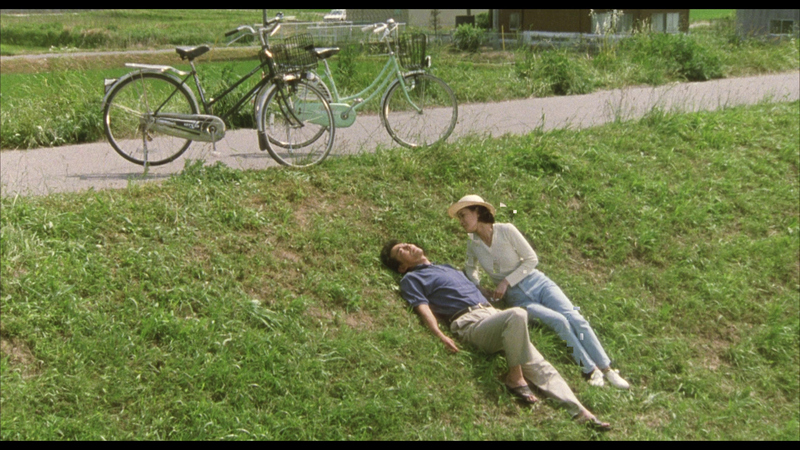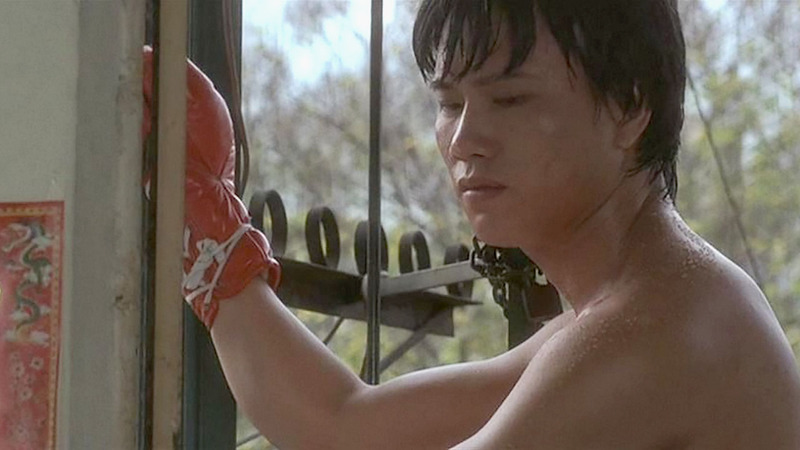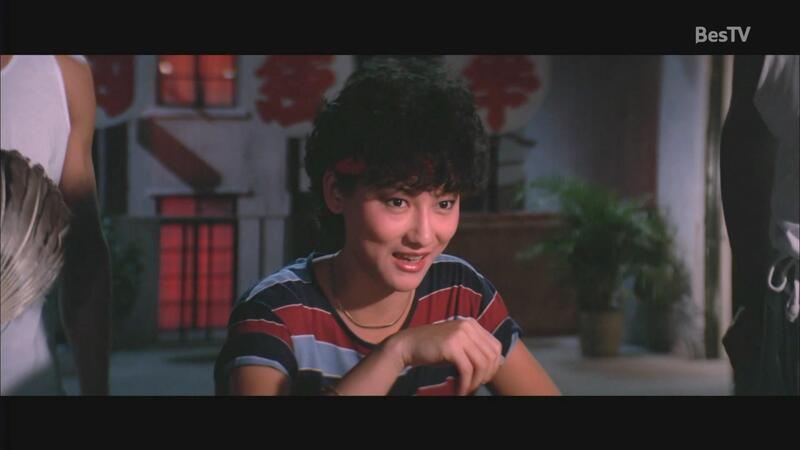
Forgiveness Doesn’t Come Easy or Cheap
MOVIE REVIEW
The Eel (Unagi)
–
Genre: Farce, Comedy, Drama
Year Released: 1997, Radiance Films Blu-ray 2025
Runtime: 1h 57m
Director(s): Shôhei Imamura
Writer(s): Shôhei Imamura, Daisuke Tengan, Motofumi Tomikawa, Akira Yoshimura
Cast: Koji Yakusho, Misa Shimizu, Akira Emoto, Fujio Tokita, Mitsuko Baisho, Show Aikawa, Ken Kobayashi, Sabu Kawahara, Etsuko Ichihara, Tomorowo Taguchi, Chiho Terada
Where to Watch: Available April 15, 2025. Pre-order your copy here: www.radiancefilms.co.uk, www.mvdshop.com, or www.amazon.com
RAVING REVIEW: Sometimes, the most gripping character dramas unfold not through grand gestures or declarations but in the quietness of everyday life. This story operates with a deceptive simplicity, following a man who’s already faced judgment, served his time, and now lives in the shadow of a single irreversible act. That premise could’ve leaned heavily into melodrama, but instead, what unfolds is a subdued, oddly moving portrait of conflict, caution, and rebirth. THE EEL offers a kind of cinematic slow burn that doesn’t demand your attention with dissonance but earns it through atmosphere, subtlety, and human truth.
The setup is stark: a man named Takuro has just completed an eight-year sentence for killing his wife after discovering her betrayal. With no family or support system, he relocates to a quiet town and opens a modest barbershop. It's a life stripped down to essentials: a job, a living space, and the unlikely companionship of an eel he raised while in prison. The eel becomes a central motif—not because it does anything fantastical but because of how much it reflects the protagonist's emotional state. Still, Takuro isn't entirely detached. He makes an effort, however hesitant, to live a quieter, more responsible life. But his past isn't a closed book, and the story reminds us how even attempts at redemption come with loose ends.
What shifts the rhythm of his solitude is Keiko, a woman he saves from a suicide attempt. Her introduction feels like a turning point, but not in the expected sense. Rather than slotting into the narrative as a love interest or a savior, she becomes a mirror. Her pain is different, but not lesser, and their connection becomes the movie's heart. Keiko starts working in the shop, and though there's mutual curiosity, the film avoids turning their bond into a tidy arc. It’s more complex than that—more about proximity and shared silence than dramatic exchanges.
The chemistry between Kōji Yakusho and Misa Shimizu is crucial in keeping this dynamic believable. Yakusho underplays Takuro with a kind of weary detachment that doesn’t come off as flat but guarded—exactly what you'd expect from someone carrying an unshakable sense of shame. Shimizu brings a sense of quiet urgency to Keiko that contrasts beautifully. She pushes gently, not out of savior syndrome, but from her need to rebuild. Their performances create tension in the in-between moments—the pauses, the second glances, the missed opportunities.
The story isn't without its rough edges. The narrative branches off in a few directions that aren’t fully explored. Secondary characters, like Keiko’s overbearing mother or a suspicious ex-con from Takuro’s past, drift in and out, creating moments of tension that never quite pay off. These elements feel more like sketches than fully integrated parts of the story. They’re compelling in isolation but don’t necessarily add depth to the central core. If anything, they dilute the emotional intensity that the film works so hard to build.
Despite its detours and pacing choices, the film remains a fascinating study of a man trying to exist. Not redeem himself through grand gestures, not rewrite his past, but simply exist. It resists easy labels, and that’s part of what makes it work. Takuro is not an antihero and certainly not a tragic, romantic figure. He’s a person who is flawed, unsure, and still processing. It’s rare to see handled with such control and thoughtfulness.
What elevates the experience is how the film doesn’t tell you how to feel. It just shows you Takuro’s life and lets the unease, the small hopes, and the repressed emotions take root. You’re invited to interpret rather than instructed to react. That makes THE EEL feel more authentic than sentimental, more introspective than judgmental.
Something refreshing about that honesty: it doesn’t hide the messiness of emotional recovery behind glossy narratives. It shows you how hard it is to rebuild trust—not just with others but with yourself. By the time the final moments arrive, there's a flicker of possibility. A quiet sense that healing doesn’t have to look like a full transformation. Sometimes, just letting someone in is enough.
Please visit https://linktr.ee/overlyhonestr for more reviews.
You can follow me on Letterboxd, Instagram, Twitter, and YouTube. My social media accounts can also be found on most platforms by searching Overly Honest Reviews.
I’m always happy to hear from my readers; please say hi or send me any questions about movies.
[photo courtesy of RADIANCE FILMS, MVD ENTERTAINMENT]
DISCLAIMER:
At Overly Honest Movie Reviews, we value honesty and transparency. Occasionally, we receive free items for review, including DVDs, Blu-rays, CDs, Vinyl, Books, etc. We assure you that these arrangements do not influence our reviews, as we are committed to providing unbiased and sincere evaluations. We aim to help you make informed entertainment choices regardless of our relationship with distributors or producers.
Amazon Affiliate Links:
Additionally, this site contains Amazon affiliate links. If you purchase through these links, we may receive a commission. This affiliate arrangement does not affect our commitment to honest reviews and helps support our site. We appreciate your trust and support in navigating these links.



Average Rating